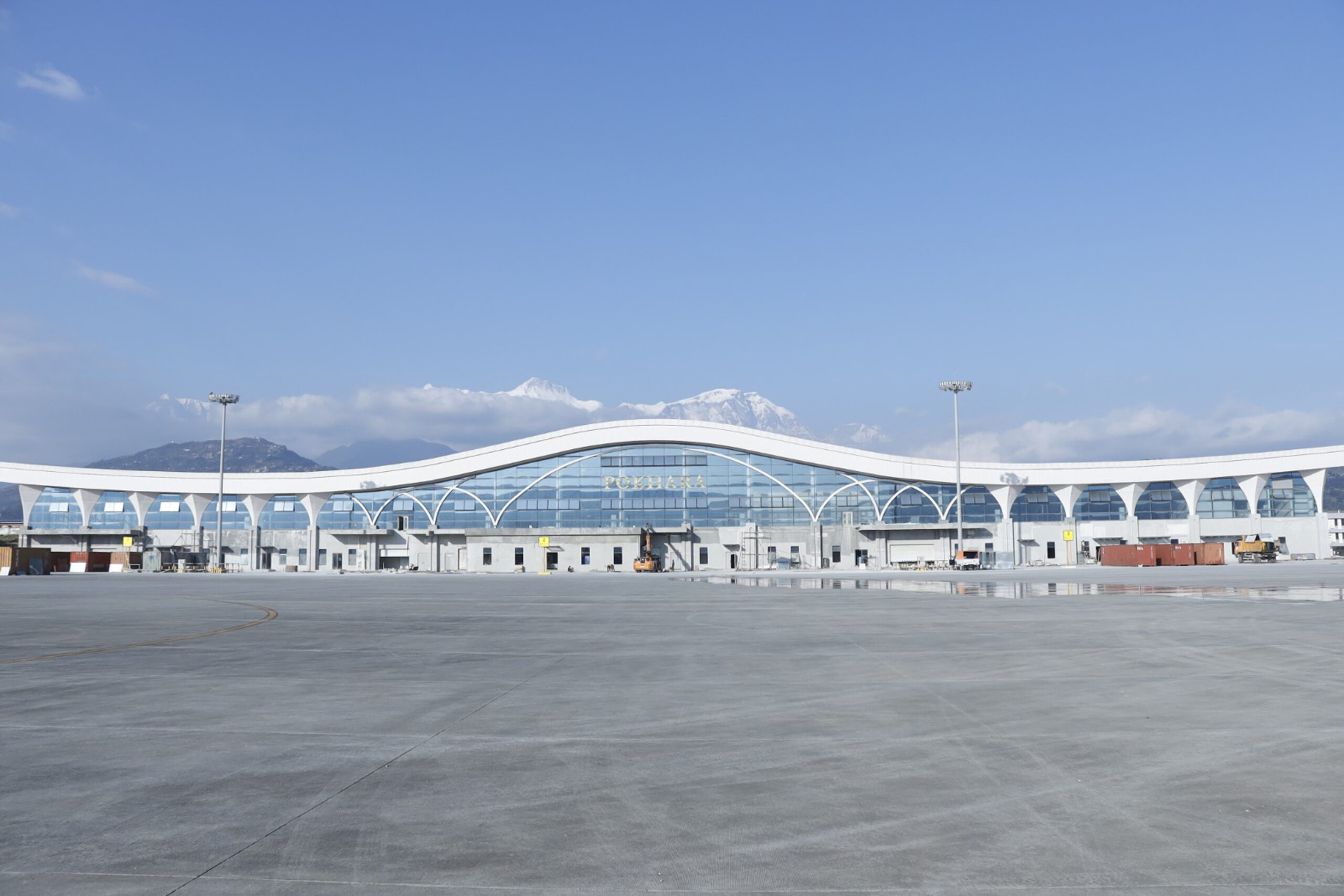0%

Pokhara International Airport/File Photo
KATHMANDU: The construction of Pokhara International Airport, marred by suspicions of abuse of authority and irregularities, has come under intense scrutiny as investigations reveal potential financial mismanagement and misappropriation amounting to Rs 20 billion.
Despite more than a year passing since the initiation of Chinese debt for the project, international flights remain elusive.
The Commission for the Investigation of Abuse of Authority (CIAA) has intensified allegations of irregularities during the airport’s construction, prompting authorities to seize documentation on October 29, 2023.
The Auditor General’s Office underscored discrepancies amounting to Rs 2 billion, particularly focusing on the doubling of costs during the contract process.
The CIAA, meanwhile, has highlighted issues such as lack of work, fueling concerns about potential malpractice.
Pradip Adhikari, the Director General and Chief of Nepal Civil Aviation Authority during the airport’s construction, is at the center of the probe.
The Auditor General’s 60-page report highlights significant damage to the country’s economic and physical infrastructure due to non-compliance with construction standards, inflated running expenses, and additional spending under the guise of consultations.
The construction of the airport commenced in 2013 through an agreement between a Chinese government official-owned company and CAMC.
The agreement involved a contract worth Rs. 224 million, inclusive of value-added tax (VAT).
The revelations of financial misappropriation have raised concerns about the accountability of top officials involved in the Pokhara Airport Project.
The agreement with the construction businessman explicitly stated that the responsibility for fee payments related to tax duties would be borne by the businessmen.
Despite the provision in the agreement stipulating the cost of counseling, the expenses for Authority reached Rs. 37.95 million, raising further questions about the justification and transparency of counseling costs.
However, despite the agreement specifying this arrangement, the project was granted exemptions on customs duty and value-added tax (excluding internal taxes).
Remarkably, the businessman failed to fulfill the financial obligations outlined in the agreement, leading to concerns about accountability and adherence to the agreed-upon terms.
The Auditor General’s report highlighted the disparity between the agreed-upon system in the construction business agreement and the actual implementation of the project.
The project, apart from fees and targeted taxes, was expected to incur Rs. 2,22,22,22,000 in duties.
However, the entrepreneurs neglected to incorporate this provision into the agreement, ultimately releasing the project without adhering to the agreed-upon terms related to customs duty and tariffs.
The Auditor General remarked in the report, “Despite the agreement specifying that the features tariffing would obligate the businessman to fulfill responsibilities, the state of the system in the agreement differs significantly.”
It added, “Entrepreneurs failed to include this provision in the agreement and proceeded with the project, raising significant concerns about compliance and financial transparency.”
Similarly, challenges have emerged in the construction of the runway, prompting questions about the procedures involved.
Complaints emphasize the need for a thorough analysis of these cost-cutting measures.
The Auditor General’s Office has also scrutinized the expenses related to work and consultations.
The agreement initially outlined provisions for consulting expenses.
However, the agreement underwent modifications, reducing the financial allocation for consultations to the province.
The contractors, in a questionable move, diminished the consultancy involvement and appointing a consultant without transparent procedures.
Despite the provision in the agreement stipulating the cost of counseling, the expenses for Authority reached Rs. 37.95 million, raising further questions about the justification and transparency of counseling costs.
The Office of the Auditor General has also asserted that 65% of the Rs. 22 million expenditure for the construction under the EPC agreement has been effectively managed, with a 15% reduction in costs.
The report on the contractual agreement with Supervision Consignment, amounting to Rs. 1952 million, indicates a noteworthy 53% contribution to counseling provisions.
The government earlier secured US$215 million prefential loan from the Export-Import Bank of China.
The agreement carries no obligation for a 25% interest payment.
However, the interest paid amounts to 344.6 million Yuan, falling short of the required sum.
The remaining amount incurs a 2% interest rate, deemed relatively high compared to the less than 1% interest offered by international donor agencies.
The debt carries a grace period of 7 years, with the entirety of the debt expected to be repaid within 20 years.
The installment landing system crucial for airport operations was connected only after the handover, raising concerns about the delayed implementation of essential safety measures, particularly given the past plane accident involving the Instrument Landing System (ILS) in Pokhara.